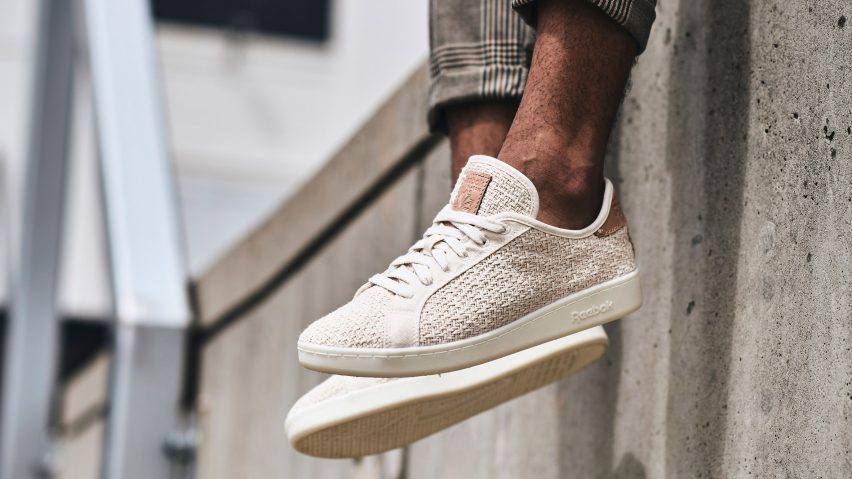
Eight companies and designers making trainers as sustainable as possible
Footwear brands are competing to produce ever more sustainable sneakers. Here are eight brands leading the pack with trainers made from algae and pineapple husks to bioplastics and recycled waste.
Big brands including Adidas and Reebok, as well as startups such as Native Shoes and Ecoalf, are trying to reduce the carbon dioxide emissions of their manufacturing methods and explore concepts such as closed-loop design, whereby materials can be endlessly recycled.
When Everlane launched its own zero-carbon sneakers earlier this year, it claimed that trainers are a "disaster for the planet".
"Of everything we wear, sneakers have one of the heaviest footprints," it said. "They require a ton of energy to produce, are made largely from virgin plastic, and never break down."
According to a study conducted by MIT, a typical pair of running shoes generates approximately 13.6 kilograms of CO2 emissions.
This figure may be even more for a shoe containing leather, considering the added environmental impact of raising and slaughtering cattle to make the material.
More and more brands however are experimenting with using eco-friendly materials and production processes that won't leave such an impact.
Here are eight companies and designers trying to reduce the impact of their sneakers:
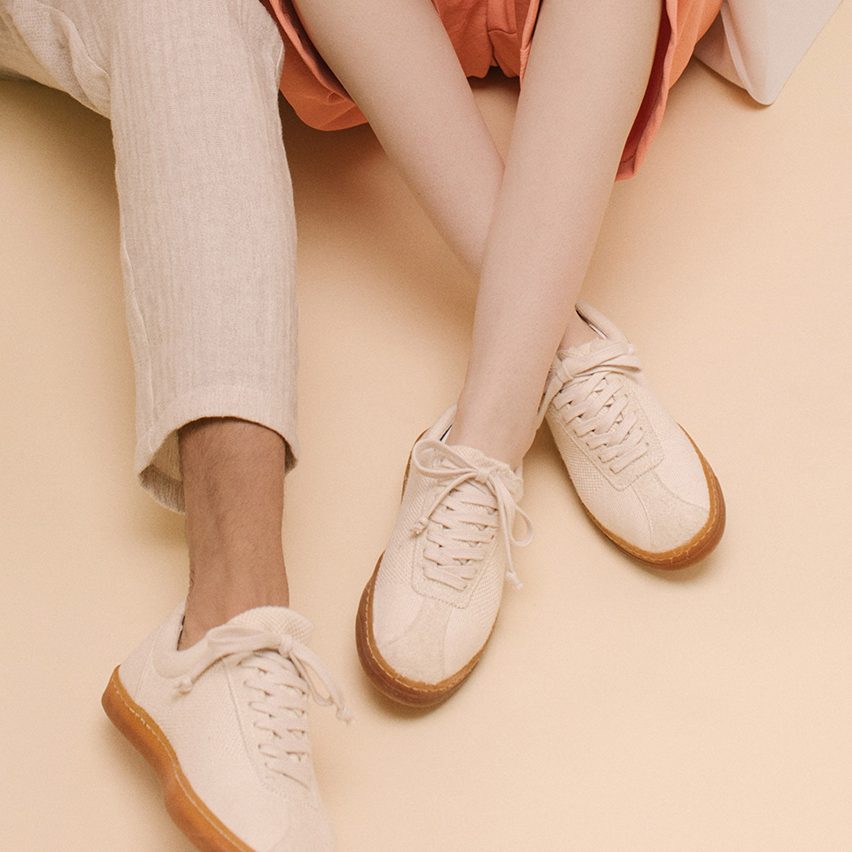
Canadian footwear brand Native Shoes released a unisex trainer made from 100 per cent plant-based materials including eucalyptus, pineapple husk, organic kenaf and dried hevea milk.
Thanks to their vegan-friendly components the sneakers can be composted – when placed in the consumer's green bin at the end of their usage they will break down naturally at a faster rate than normal.
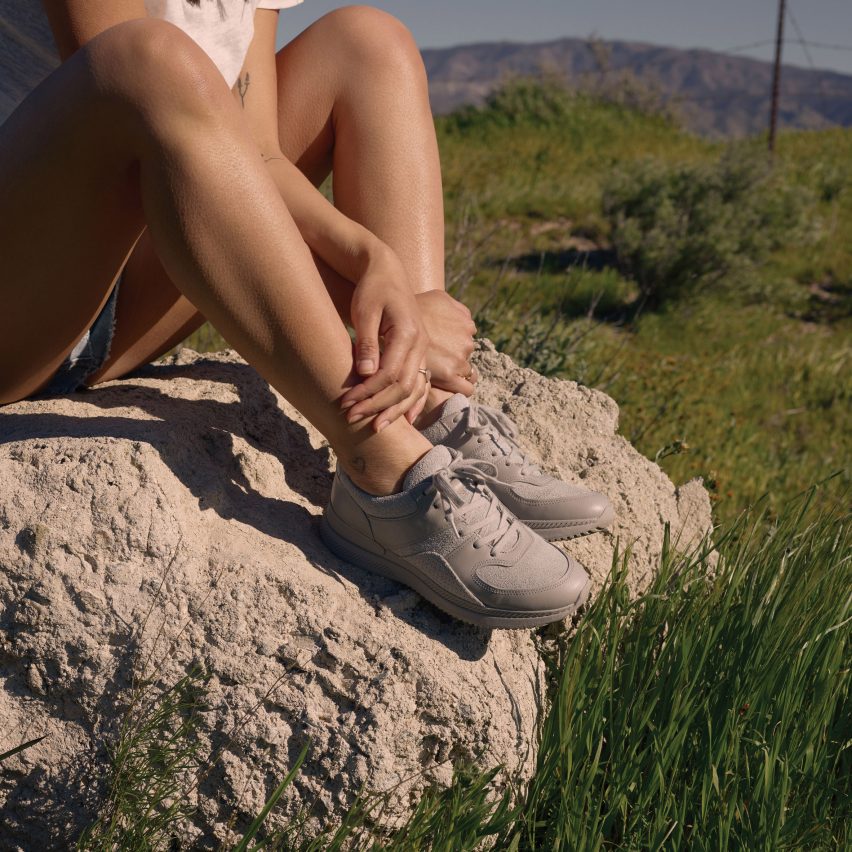
American fashion brand Everlane launched what it claims are "the world's most sustainable sneakers" made from leather, recycled rubber and plastic bottles.
It claims the shoes are are completely carbon neutral, largely due to a carbon-offsetting programme.
The uppers of the unisex Tread trainers are made of leather sourced from "the world's cleanest tannery" in southern Vietnam, which claims to use 42 per cent less electricity and 56 per cent less water than other facilities, and to emit 35 per cent fewer greenhouse gases.
By using leather, the company hopes to make the trainers longer-lasting, to avoid more products ending up in landfills like many other sneakers that are made largely from synthetic materials.
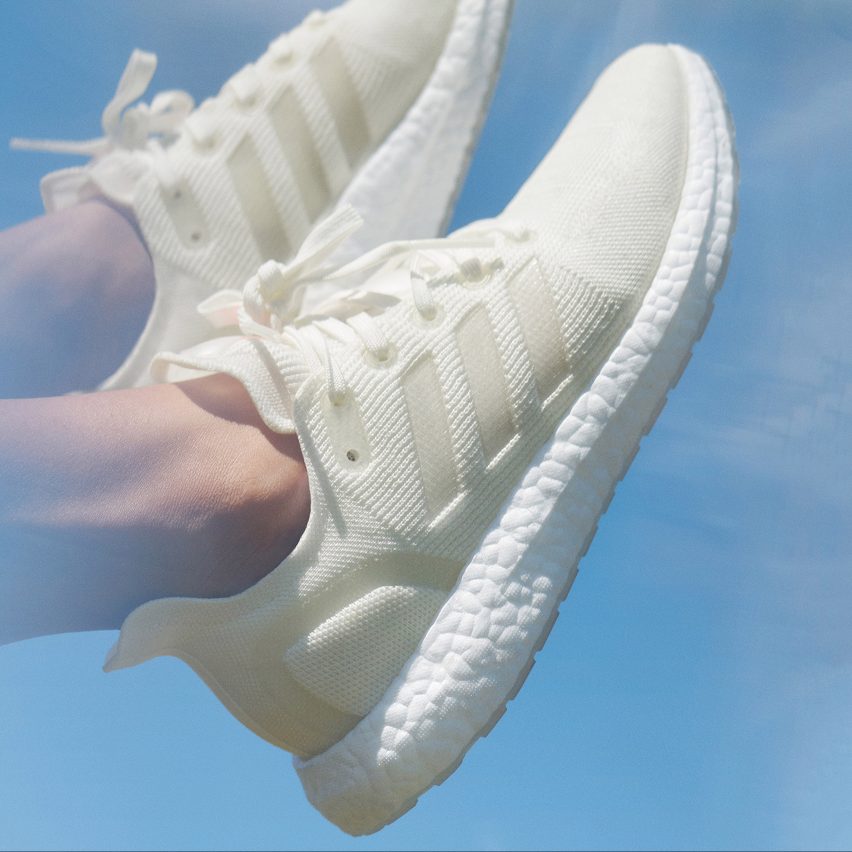
Futurecraft Loop shoes by Adidas
As part of its attempt to mitigate the plastic crisis, Adidas launched its Futurecraft Loop shoe in April this year, made from virgin plastic that can be ground up and remade again as part of a closed-loop system.
The shoe is made entirely from a single material, virgin thermoplastic polyurethane (TPU), which is key to its recyclability.
According to the brand, one of the biggest challenges in recycling sneakers is that they are made of lots of different materials, and difficult to divide up and repurpose.
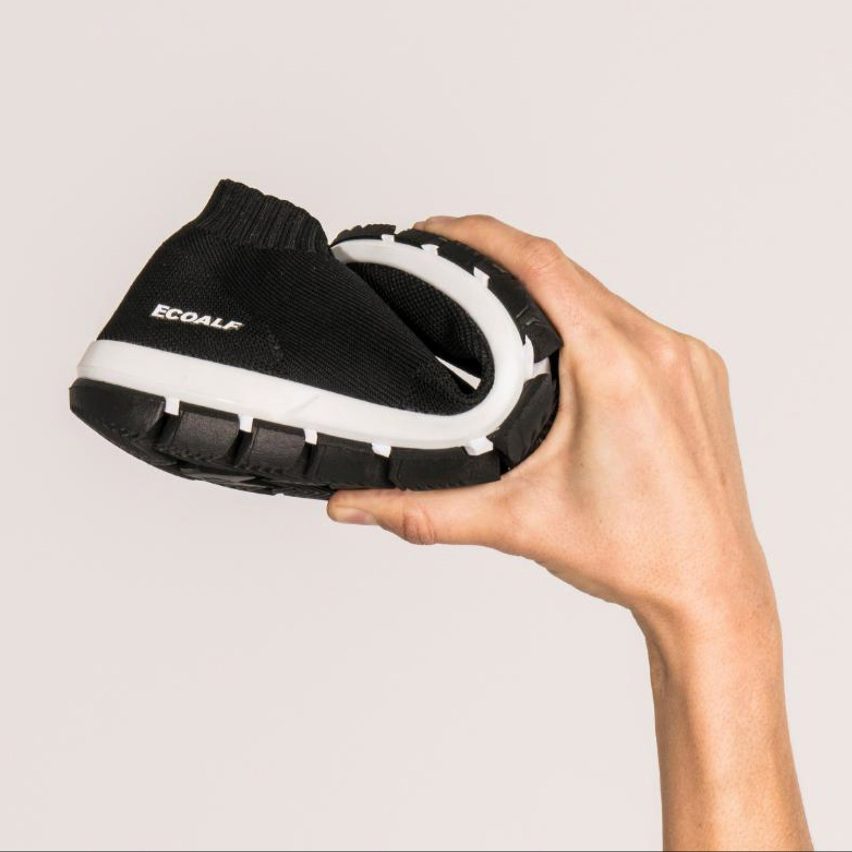
Five old plastic bottles sourced from the Mediterranean Sea are used to create each pair of these Shao sneakers by Spanish fashion brand Ecoalf, which are created with a zero-waste process.
The discarded plastic is processed into a yarn, which is used to create the black knitted upper sole that fits the wearer like a sock. The outer sole is made from a type of algae that grows in excess in lakes and rivers, which Ecoalf transforms into a flexible foam that permits easy movement.
According to the brand, removing the algae from lakes and rivers also allows clean water to circulate properly, supporting plant and animal life.
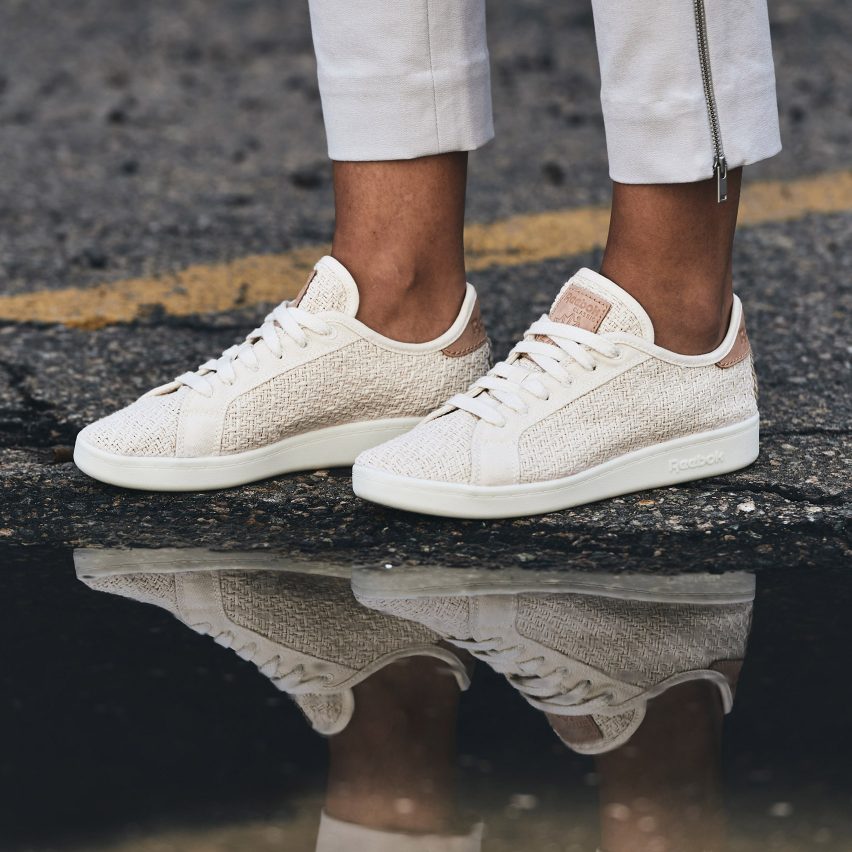
Cotton + Corn sneaker by Reebok
Sportswear brand Reebok launched its Cotton + Corn initiative in 2017 in a bid to reduce the environmental impact of the fashion industry.
Its first product was a pair of trainers made from a total of 75 per cent bio-based content, including a bioplastic sole.
As a more sustainable alternative to the petroleum-based rubber and foam soles that are used in footwear, Reebok's bioplastic sole is made from corn, while its insole is derived from castor bean oil, and the upper woven from 100 per cent cotton.
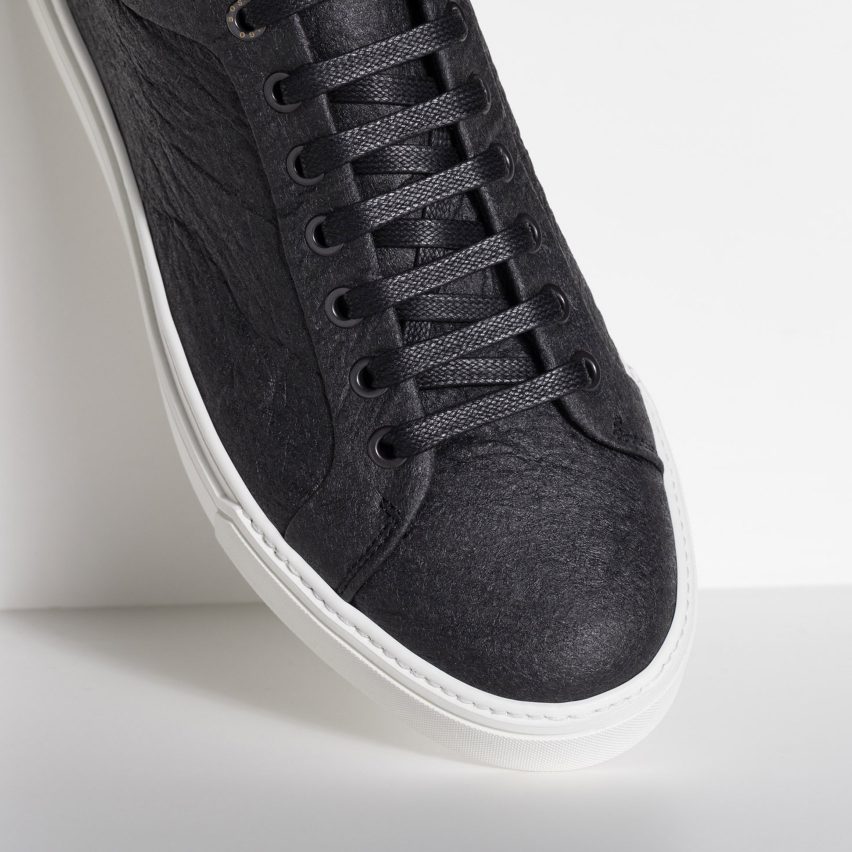
Fashion label Hugo Boss has also made its mark in sustainable footwear with a pair of vegan men's shoes made from recycled thermoplastic polyurethane (TPU) and Piñatex – a plant-based alternative to leather made from pineapple-leaf fibres.
Unlike leather production, which uses a lot of water and requires chemicals for the tanning process, Piñatex is made as a by-product of the existing pineapple industry, and so allows farmers to make money from a waste product that would otherwise not be put to use.
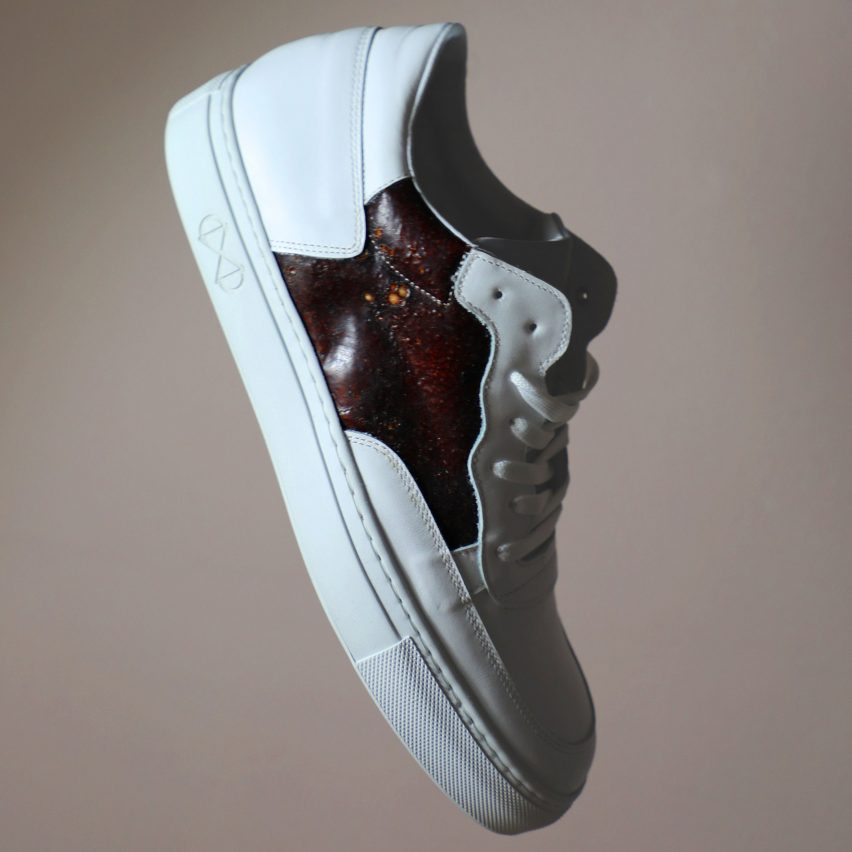
Blood sneakers by Shahar Livne
Israeli designer Shahar Livne designed a pair of sneakers with inserts made from the wasted fat, bones and blood of animals, taken from waste streams of slaughterhouses in the Netherlands, as a more sustainable alternative to leather.
Inspired by the "nose to tail" attitude of using the entire animal, Livne also used discarded blood as an ink-like colourant and plasticiser for the deep-red material.
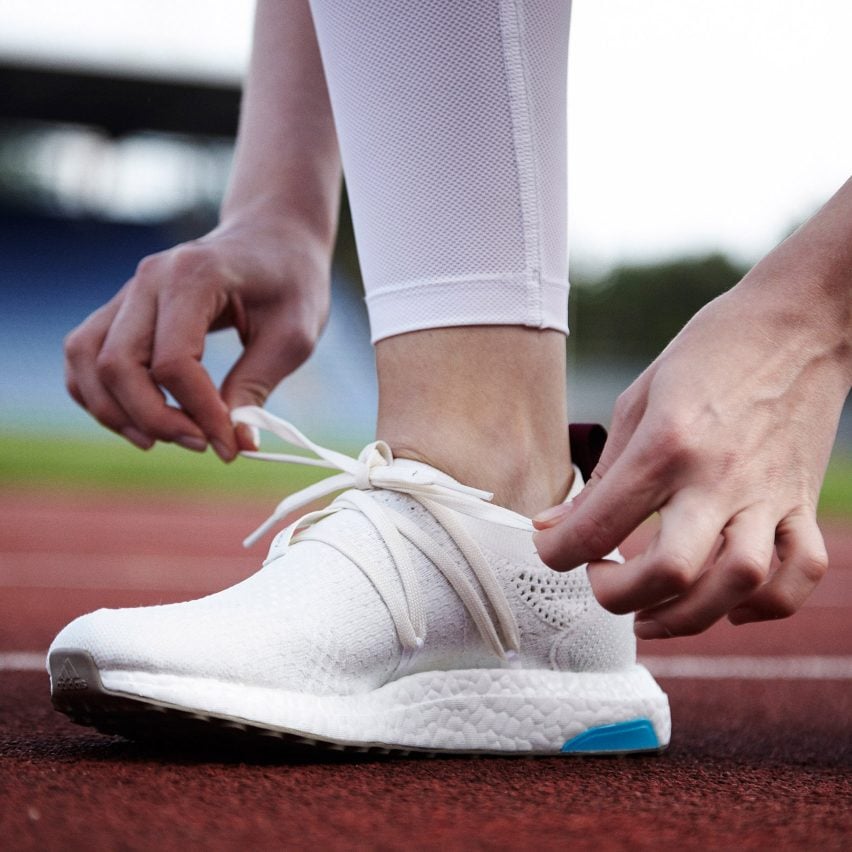
Ocean Legends by Stella Mcartney and Parley for the Oceans
Fashion designer Stella McCartney partnered with environmental initiative Parley for the Oceans in June 2017 on a long-term project called Ocean Legends, which sees McCartney's label use ocean plastic instead of woven or recycled polyester in its products.
The Ocean Legends collection builds on McCartney's existing relationship with Parley for the Oceans through Adidas, after she designed a new version of the Ultra Boost trainer made from ocean plastic.